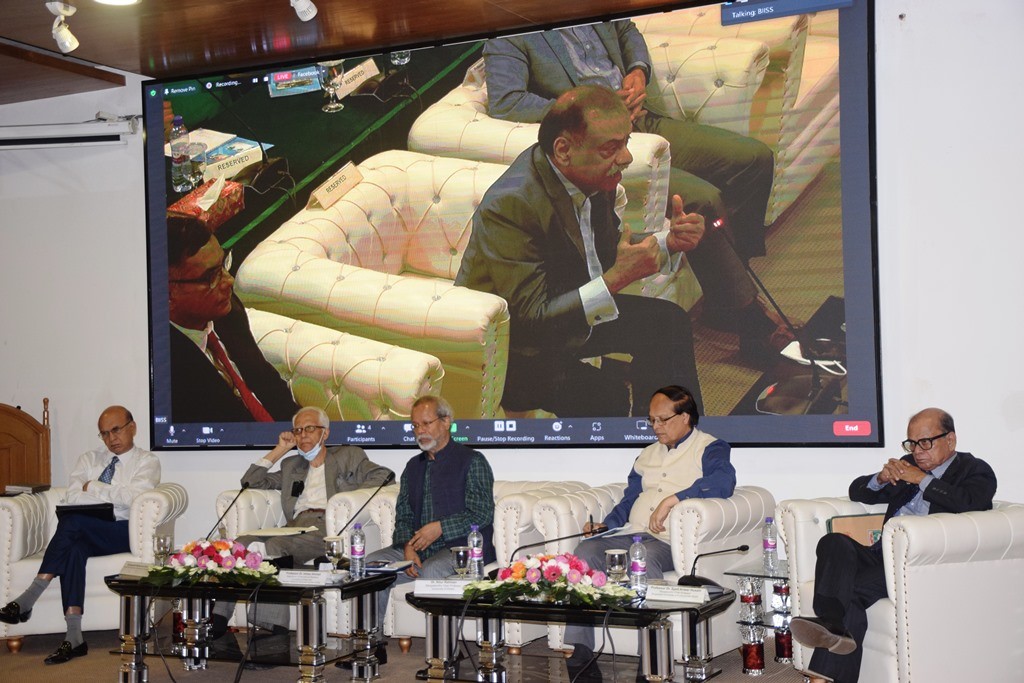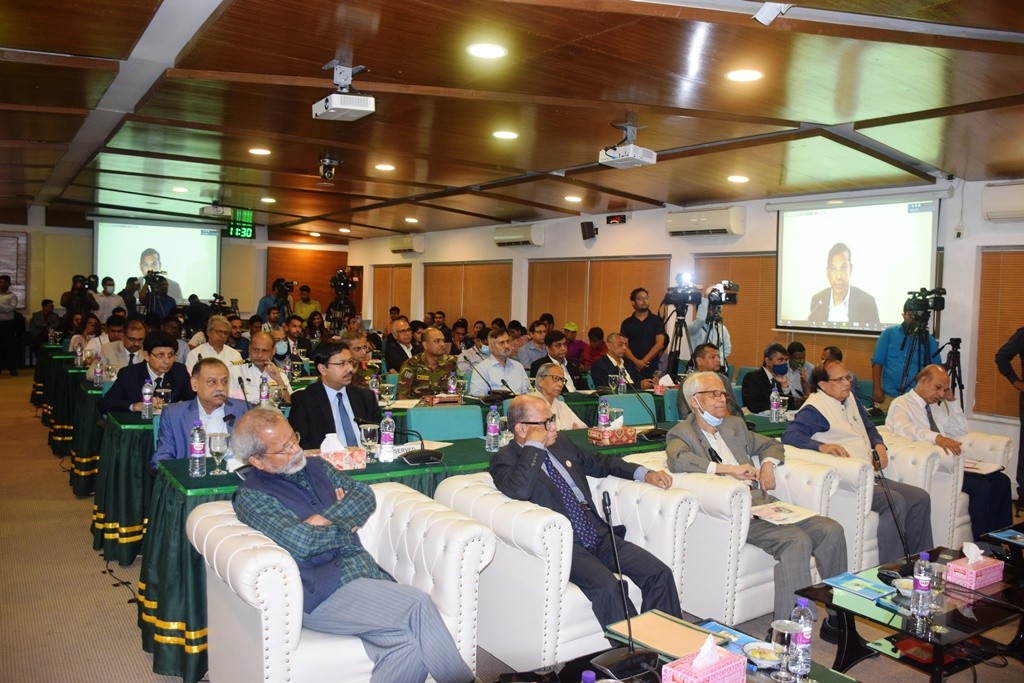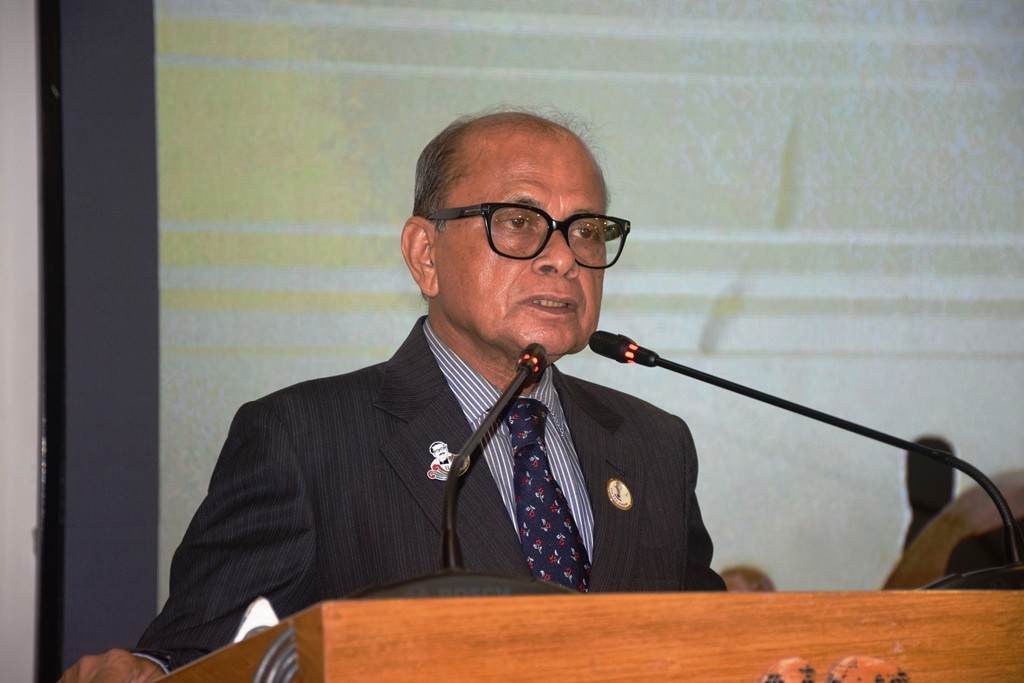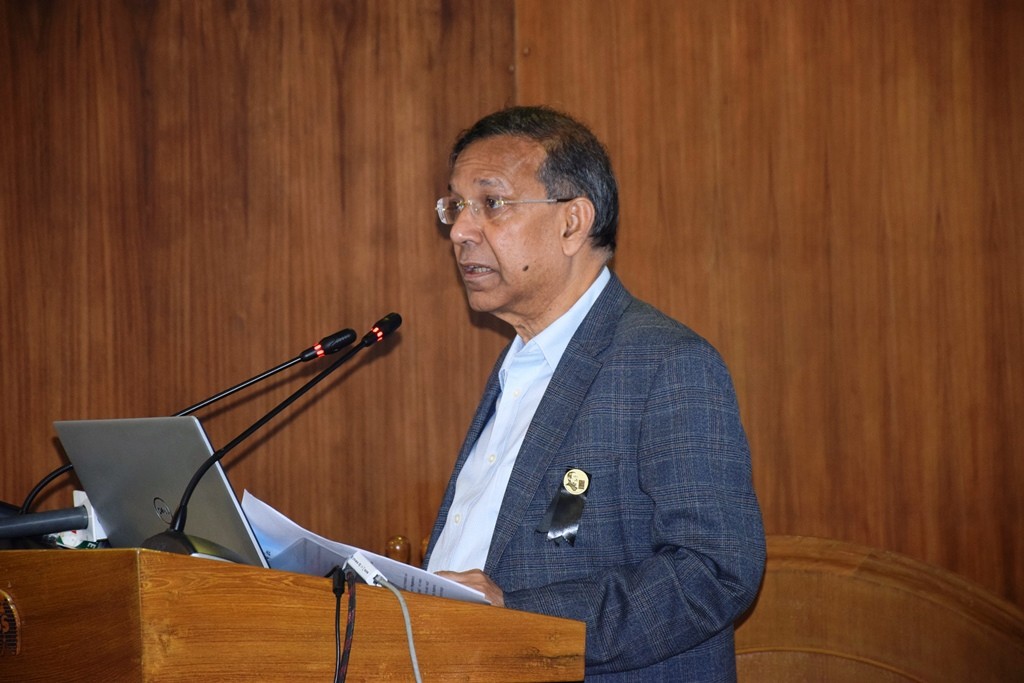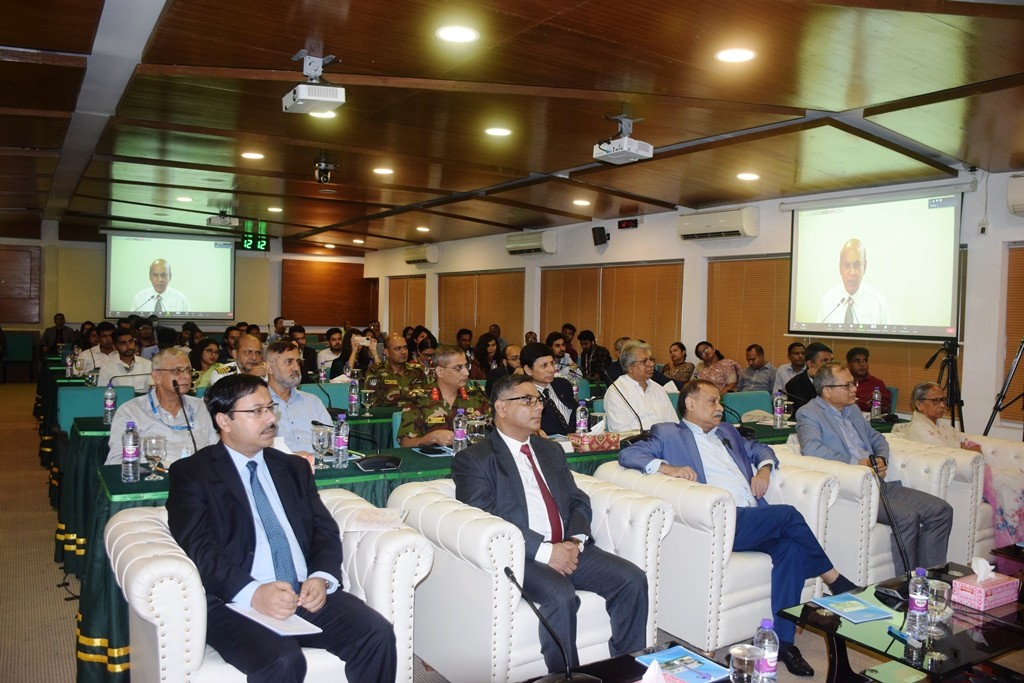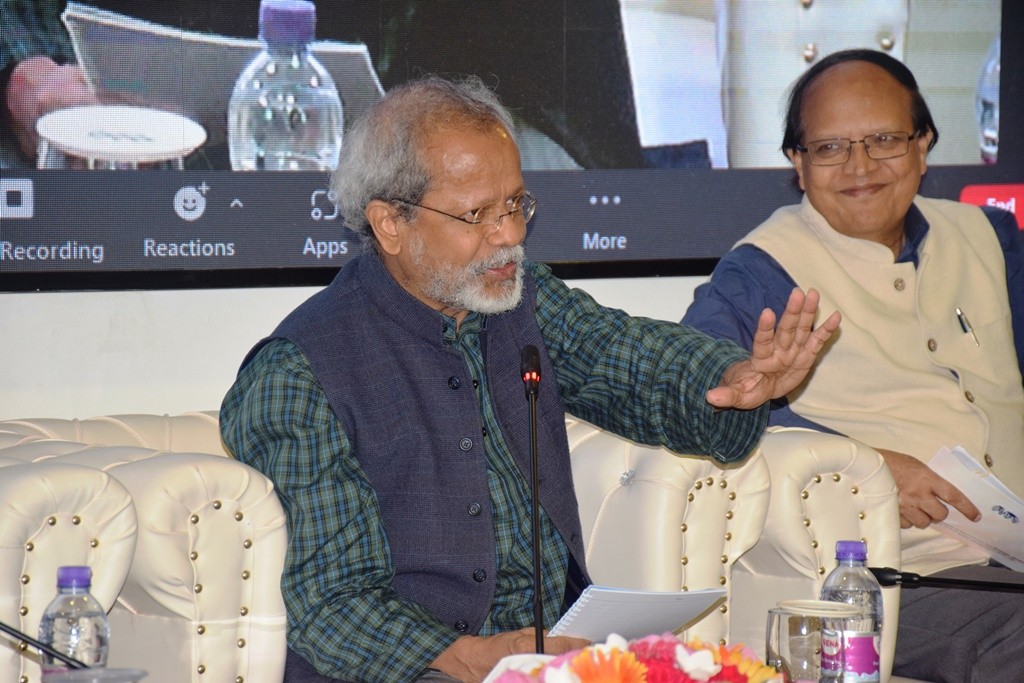Hybrid Seminar on Bangabandhu’s Vision: Relevance in the Context of 21st Century on 28 August 2022
DATE: 2022-08-28
Bangladesh Institute of International and Strategic Studies (BIISS) organised a hybrid seminar titled “Bangabandhu’s Vision: Relevance in the Context of 21st Century” on 28 August 2022 at the BIISS auditorium. The seminar was divided into two sessions. H E Mr Anisul Huq MP, honourable Minister for Law, Justice and Parliamentary Affairs, Government of Bangladesh, graced the programme as Chief Guest of the inaugural session. Major General Mohammad Maksudur Rahman, OSP, BSP, psc, Director General, BIISS delivered the welcome address. Professor Dr Delwar Hossain, Department of International Relations, University of Dhaka, and Member, Bangladesh Public Service Commission (BPSC), chaired the session. The working session was chaired by Professor Dr Imtiaz Ahmed, Professor of International Relations, and Director, Centre for Genocide Studies (CGS), University of Dhaka. Paper presenters in this session included Lt Col (retd) Quazi Sajjad Ali Zahir, Bir Protik, Bir Protik; Professor Dr Syed Anwar Husain, Bangabandhu Chair Professor, Bangladesh University of Professionals (BUP); Ambassador Muhammad Zamir, former Chief Information Commissioner, Bangladesh; and Dr Atiur Rahman, Bangabandhu Chair Professor, University of Dhaka. These presentations were followed by an interactive open discussion.
In his welcome address, Major General Mohammad Maksudur Rahman, OSP, BSP, psc, said that the Father of the Nation, Bangabandhu Sheikh Mujibur Rahman, was a global leader whose ideals, thoughts, policies, deeds and legacies surpassed Bangladesh and won global esteem and acceptance. Hence, his worldviews remain as relevant for today as they were in his lifetime.
The Chief Guest, H E Mr Anisul Huq MP, in his speech said that Bangabandhu’s resolve, far-sight, and courage helped Bangladesh achieve freedom from Pakistani injustice. His principles continue to guide it to this day. Bangabandhu successfully upheld Bangladesh’s neutrality during bipolar days. His famous message, “Friendship to all, malice towards none”, is the basis of Bangladesh’ foreign policy and pertinent for building a better world today through peace, justice, development, and cooperation.
The chair of the session, Professor Dr Delwar Hossain emphasised that Bangabandhu pursued peace not only at a global level but also at the societal level. He felt that Bangabandhu’s vision is a combination of emancipation, hope, courage, resilience and a comprehensive understanding of societal and global worldviews.
Distinguished presenters in their papers, reflected on how Bangabandhu’s views and works shaped Bangladesh’s policies and can be used to realise his dream of a secure, happy, and just global system. Lt Col (retd) Quazi Sajjad Ali Zahir, Bir Protik shared his personal experiences during the time of the Liberation War that involved Bangabandhu’s charismatic leadership and influence over the nation. In his presentation titled “Bangabandhu’s Vision on Peace, Security and Prosperity: Relevance in the Context of 21st Century,” he referred to Bangabandhu as the “hero of the heroes” and shared how he instilled hope and aspiration in the hearts of the Bangladeshi people.
Professor Dr Syed Anwar Husain presented a paper titled “International System and Just World: The Ideas of Bangabandhu.” He elaborated on the egalitarian international society that Bangabandhu dreamt for. He also pointed out the principles of Bangabandhu that clearly demonstrate his peace-intent and knack for international social peace through social justice.
Ambassador Muhammad Zamir reflected on “Foreign Policy and Diplomacy: The Principles of Bangabandhu”. He shared his personal interactions with Bangabandhu to illustrate how his visionary leadership paved the way for Bangladesh’s global outreach. His presentation helped the audience understand that Bangabandhu’s sagacious policies were eloquently formulated to maintain befitting relations with both immediate and distant neighbours.
Dr Atiur Rahman made a presentation on “Global Economic Order: The Philosophies of Bangabandhu.” He pointed out that Bangabandhu made a balance between economic freedom and political freedom as well as economic growth and social justice when formidable challenges existed for developing economies. He also rightly identified the importance of self-reliance and economic cooperation among these countries. Bangabandhu’s economic philosophies are still guiding Bangladesh amid the contemporary global crises.
The chair of the session Professor Dr Imtiaz Ahmed stated that Bangabandhu’s firm stance on non-alignment and the motto of “friendship to all” even during critical moments of the country signifies his courage and valour. Dr Imtiaz opined that the concept of “Bangladeshi Dream” must be broadened to match to the dream of Bangabandhu. He hoped for inclusive and eager participation of the young generation in all sectors to achieve this glorious future of the country.
Senior officials from different ministries, ambassadors, high commissioners, former diplomats, senior military officials, media, academia, researchers, teachers and students from different universities, representatives from different international organisations participated in the seminar and enriched it by presenting their valuable opinions, comments, suggestions and observations during the open discussion session.


